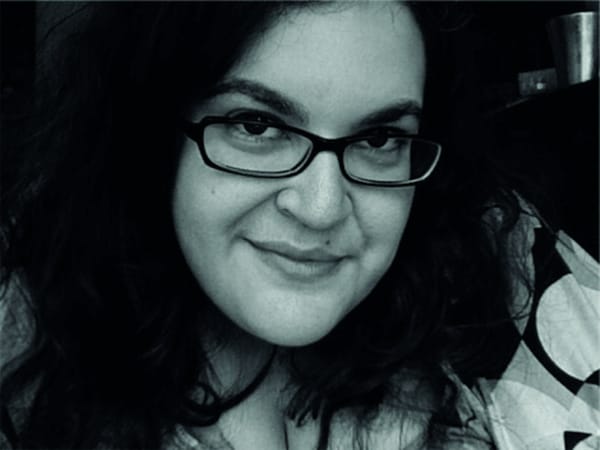Literature should not just be about ‘dead white men’
Following a Cambridge University English student’s call to ‘decolonise’ the English Literature syllabus to include more BAME writers, Books Editor Jingjie Cheng gives her take on the issue.

Much has been written so far about ‘decolonising’ the English Literature curriculum, after Cambridge University’s English undergraduate Lola Olufemi wrote an open letter imploring her faculty to broaden their curriculum to include non-white writers. The letter, signed by around 150 students, called on the university to “meaningfully incorporate” non-white authors and postcolonial thought into the curriculum, rather than having it as an “afterthought” in the form of an optional paper in their final year.
The Daily Telegraph picked up on this story and claimed that Olufemi was trying to “replace” white writers with black ones, leading to a barrage of social media abuse directed at her. That a simple call to diversify one’s reading list was painted as an attempt to eliminate white men is emblematic of precisely the very problem that Olufemi is trying to address.
Literature is meant to capture a shared humanity. It describes the human experience in all its myriad forms – a collective cultural baggage that we all shoulder together. A curriculum comprising only of privileged, white male writers narrows one’s study of literature and the human experience severely, shaping a parochial view of the world. If anything, the study of Literature is the best vehicle to challenge one’s preconceived ideas and make one more open-minded – this should be part of its aim. After all, reading allows one to inhabit someone else’s life, in another time, culture, and place, generating empathy and allowing a richer appreciation of life.
However, I would like to distinguish here between simply ‘diversifying’ the curriculum and putting more focus on postcolonial writing. Postcolonial writing is not all of this diversification: it specifically involves ideas of reclaiming voice, of speaking out and speaking back to those traditionally in power, and of telling one’s own narrative in one’s own voice, rather than that of the coloniser. There is value, however, in diversifying curriculum by including writing from cultures and experiences that are not our own, even if they are not postcolonial in nature.
Of course, when one studies English Literature, one expects to learn texts from the English canon, and I can understand why translated works are not included – they would be included in the literary studies of their respective languages. There is limited time within a curriculum to teach all the good literature that is out there. Thus, curating the curriculum becomes all the more important. While classic white male English writers should never be removed from the curriculum, there should perhaps still be space for writers from different backgrounds.
Olufemi is right in insisting that “postcolonial writing is not an afterthought, it is English Literature” – unlike simply reading from different cultures, postcolonial literature itself is entwined with English history, and thus should be part of the English canon. The process of colonisation, and the bloodshed, evangelism, and cultural mixing and clashing that followed, bring together two peoples, the coloniser and the colonised, and there is no extracting one from this shared history. The exclusion of postcolonial literature from the main English curriculum is a blatant denial that this shared history exists.
Interestingly, The Guardian’s suggested list of BAME writers to pick up did not include a single East Asian writer. It is a trend I have noticed in BAME advocacy and especially in the study of Literature. It appears to me that East Asian writers that write in English tend to be seen as more ‘white’ – think of Man Booker Prize-winning and now Nobel Literature laureate Kazuo Ishiguro. His books are widely read, but mostly speak from the English tradition – not surprisingly, since he grew up in the UK. However, even when we consider Haruki Murakami, who writes in his native Japanese and whose translated works are popular in the West, little is said about reading him as a form of BAME resistance. This is despite the fact that his stories do stem from an East Asian tradition, and carry with it its own cultural concepts.
Perhaps this is because many East Asian territories have not been colonised by the West, and there is not so much a ‘decolonisation’ to write about than a simple diversification and broadening of horizons to be done. Southeast Asia, however, has a history of being colonised by the West, and has its own body of postcolonial literature as well. Why are these works not included in BAME Literature lists? It is my opinion that postcolonial thought should also be extended to include other alternative voices, such as feminist and LGBT+ writing. Postcolonial theory can be applied to any community whose voices are or once were suppressed, but who then develop a body of work that tell their stories in their own voices. This is why works like Jackie Kay’s Trumpet, which tells the story of a black man originally born a woman, written in the most beautiful prose, are so important in representing the human experience in the diversity that it is.
Literature, as a vehicle for diverse experiences that represent a shared human experience, should not be confined to the voice of any one community. Humanity progresses, and the study of literature, that represents humanity, should move with the times as well.










